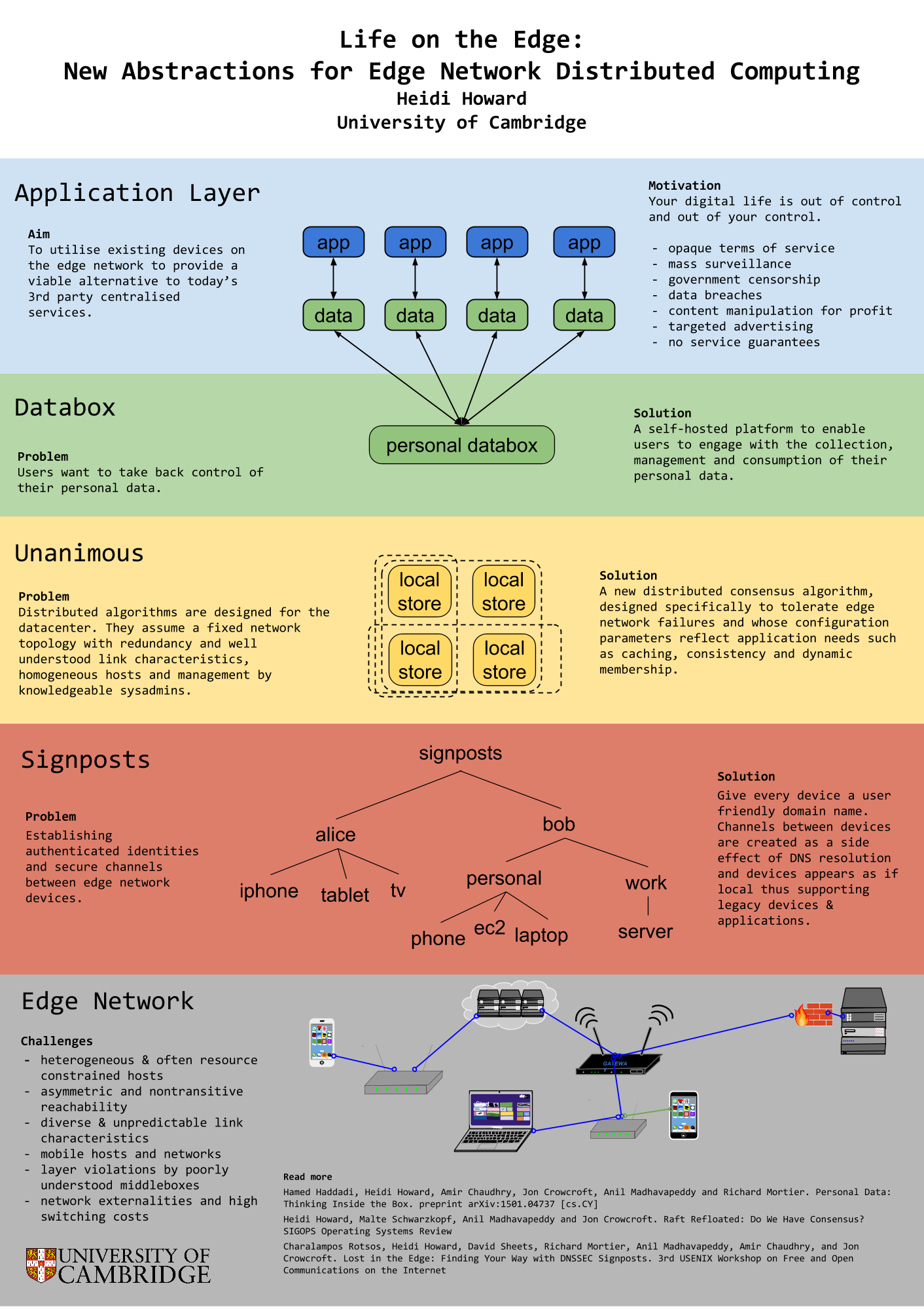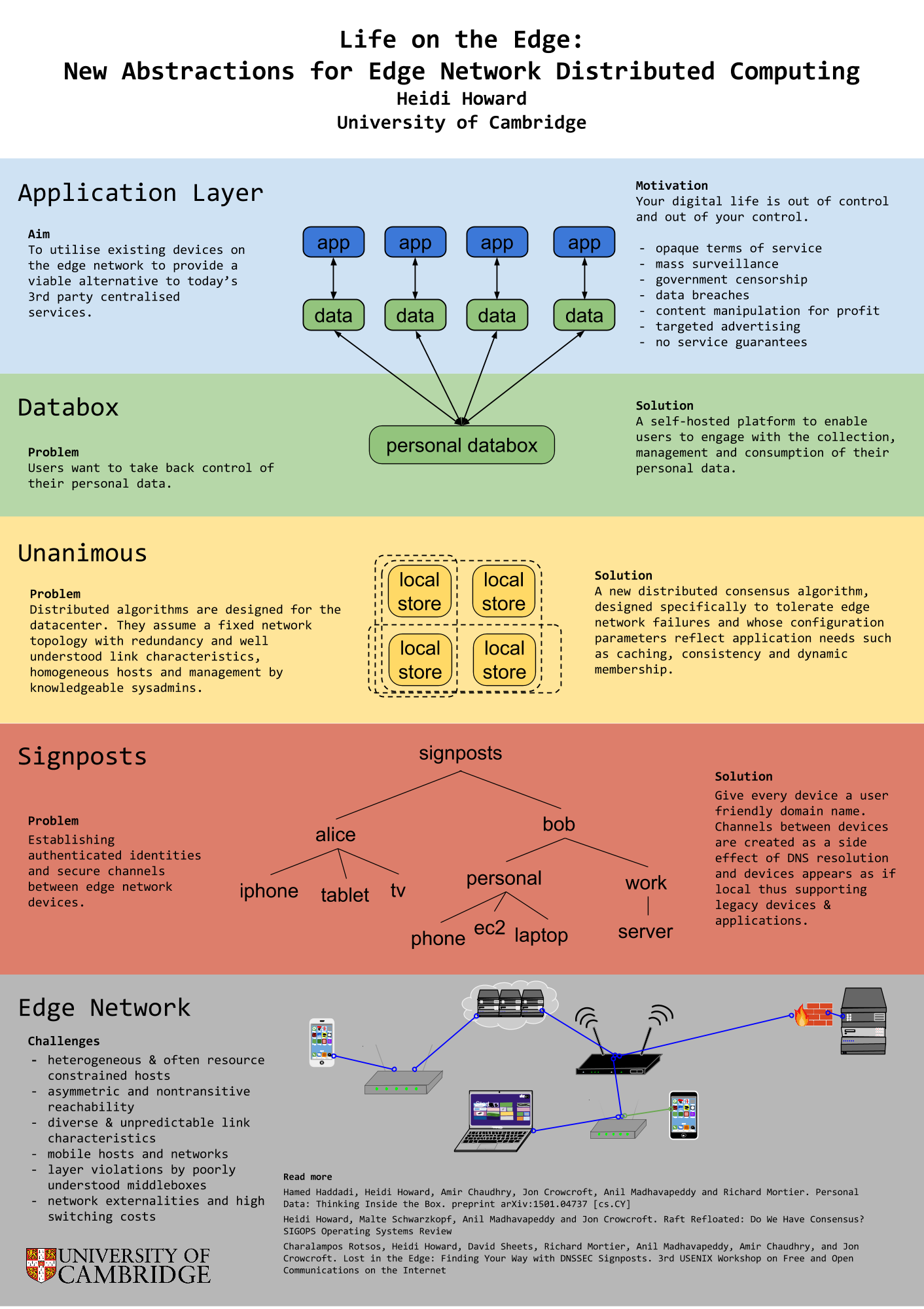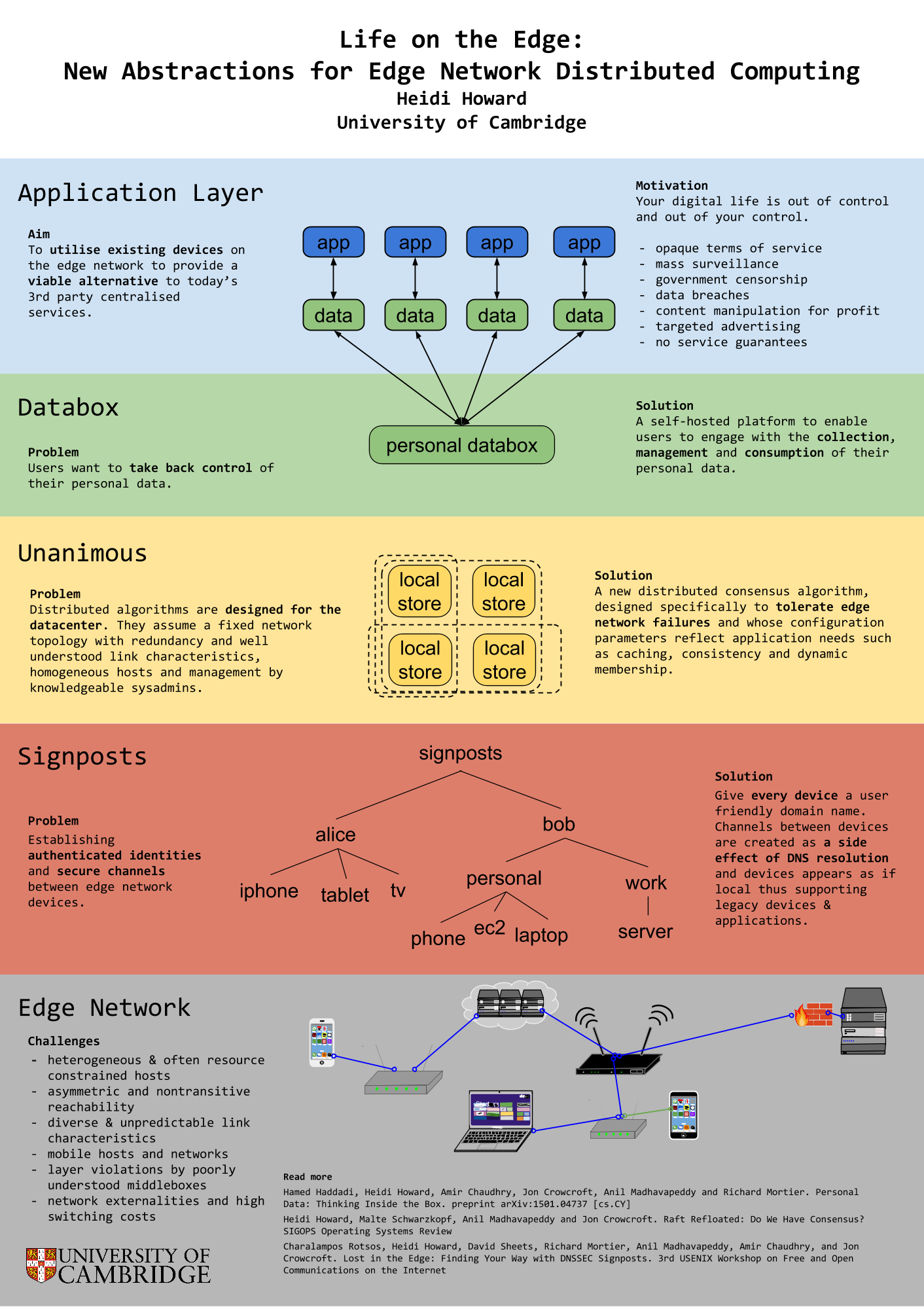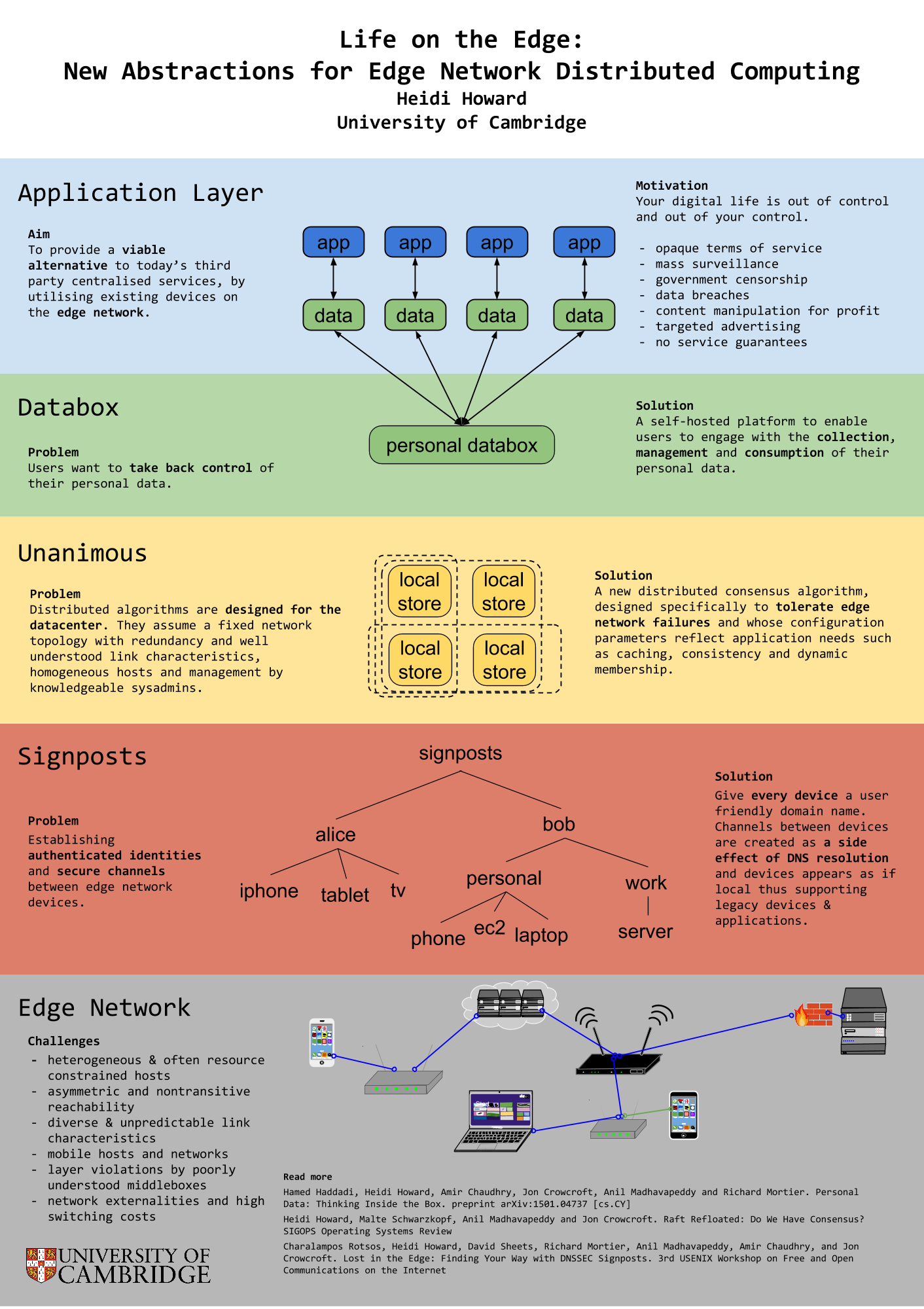Ethical Privacy Guidelines for Mobile Connectivity Measurements is the first item on the C3S reading list, below is my brief notes on this November 2013 report by the Oxford Internet Institute.
The stated purpose of this report is to inform networking researchers about the best practices for preserving data subject privacy when performing active measurement of mobile networks.
Researcher must make a comprise between the privacy of data subjects and dissemination of research artefacts for reproducibility. To aid in reasoning about this comprise, the report presents a risk assessments format covering: the contributions of the research, risk of de-identification, impact of re-identification, unforeseen risk (such as data theft), methods to dissemination artefacts, informed consent and transparency. The report goes onto discuss a few legal implications, in particular, the ongoing debate on whether IP addresses and communication metadata are personally identifiable information.
The authors focus on a guiding principle: collect the minimal data possible to conducted the stated research. Data should n0t be used for a secondary purpose unless explained at the consent stage. This includes open dissemination of the data collected. The report suggests some methods of fuzzing the data including: perturbation, truncation, permutation, quantisation, pseudonymization, k-anonymity and differential privacy.
Overall, I would recommend the report to someone new to the domain of data privacy, as its a nice introduction to the topic. The authors raise awareness of the necessary compromise between reproducible research and data privacy. Though they do not provide concrete advise to researchers on how to make the best compromise (other than telling them to be conservative). The report claims to focus on active mobile measurements, in practice its contribution is much more general than this. I would love to see this report with real-world examples of measurement studies that have been conducted, the comprise between reproducible research and data privacy that was chosen and how it was chosen.




